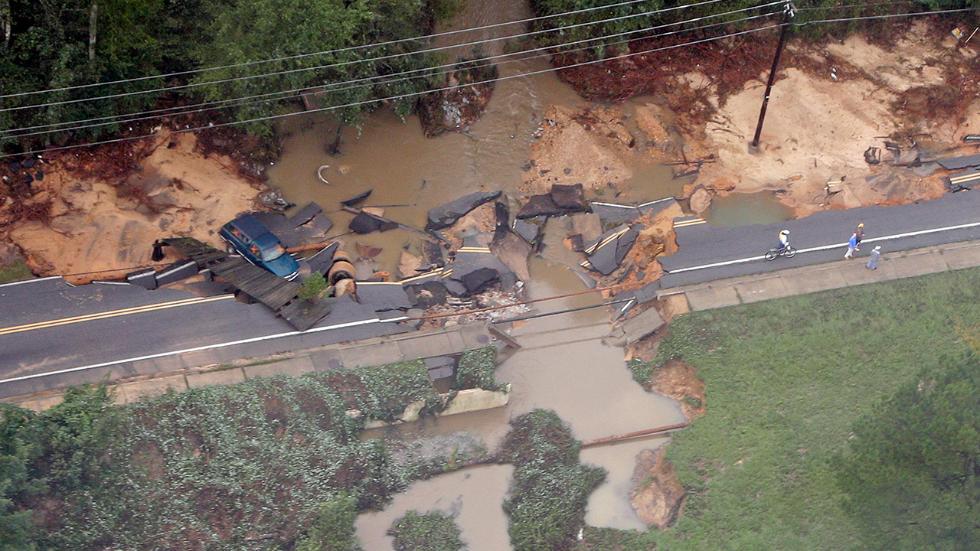“[W]e’re seeing once-in-a-thousand year flooding along the South Carolina coastline as a consequence of the extreme supply of moisture streaming in from Hurricane Joaquin,” climate scientist Michael Mann told the Washington Post. “There is an exponential relationship between sea surface temperature and the amount of moisture in the atmosphere above it. So record warm temperatures means record amounts of moisture.”
This is hardly the first time this pattern has been identified. Identifying the cause isn’t enough. The economic and human consequences of superstorms like the one devastating South Carolina this week are deadly serious. It’s time for an equally serious strategy to arrest and subdue runaway climate change that’s driving them.
Ironically, it was a South Carolinian — Congressman Bob Inglis — who courageously championed the most effective response a half-dozen years ago. Inglis’s “Raise Wages, Cut Carbon Act of 2009” proposed a rising tax on carbon pollution. Consistent with conservative thinking, Inglis’s carbon tax was revenue-neutral, with all revenue dedicated to cutting payroll taxes. Nevertheless, he lost his seat in the 2010 anti-tax and anti-science “wave” election that brought the Tea Party stranglehold to the House.
The economics behind Inglis’ proposal are rock solid. Fossil fuels are far more costly than their “sticker” price when the full consequences — like flood damage — are counted. That message got shouted down in 2010.
Inglis, who now runs RepublicEN, may be too modest and politic to say “I told you so” to the voters who spurned him. But we can.
Photo: The Weather Channel


Kirk Winters says
Great piece! Warming’s Fingerprints All Over Latest Floods — Carbon Tax Is More Urgent Than Ever